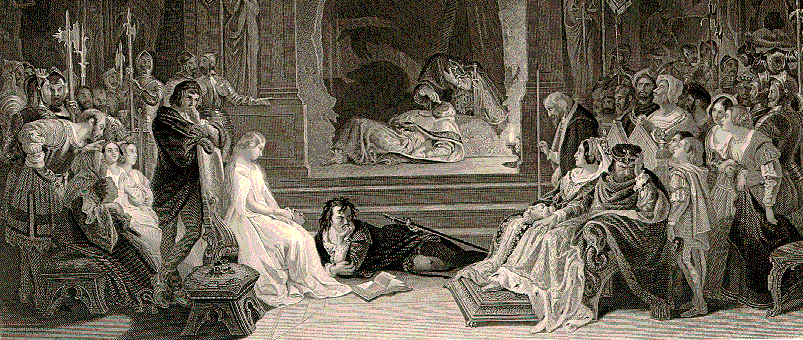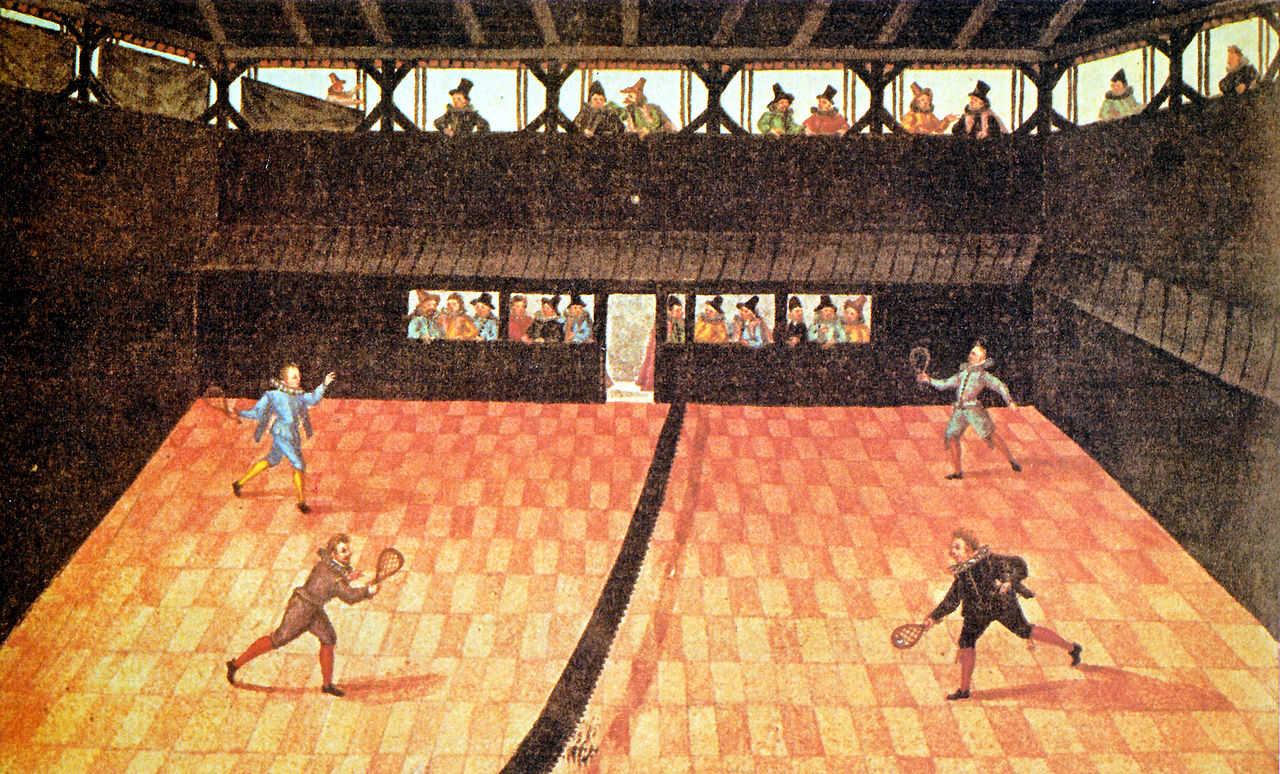
Prince Hamlet thought uncle a traitor
For having it off with his Mater;
Revenge Dad or not —
That’s the gist of the plot —
And he did — nine soliloquies later.
— Stanley J. Sharpless

Prince Hamlet thought uncle a traitor
For having it off with his Mater;
Revenge Dad or not —
That’s the gist of the plot —
And he did — nine soliloquies later.
— Stanley J. Sharpless

Simple living was clearly the nub
Of the teaching of one who could snub
Alexander the Great
With: “Move along, mate!
You are taking the sun off my tub.”
— Joyce Johnson

A quirky old gent, name of Freud,
Was, not without reason, anneud
That his concept of Id,
And all that Id did,
Was so starkly and loosely empleud.
— Martin Fagg
“If you dream,” said the eminent Freud,
“Your Id is in doubt, or annoyed,
By neuroses complex
From suppression of sex,
So passions are best if enjoyed.”
— Russell Miller
Sigmund Freud says that one who reflects
Sees that sex has far-reaching effects,
For bottled-up urges
Come out in great surges
In directions that no-one expects.
— Peter Alexander
Said Freud: “I’ve discovered the Id.
Of all your repressions be rid.
It won’t ease the gravity
Of all the depravity,
But you’ll know why you did what you did.”
— Frank Richards

If in my weake conceit, (for selfe disport),
The world I sample to a Tennis-court,
Where fate and fortune daily meet to play,
I doe conceive, I doe not much misse-say.
All manner chance are Rackets, wherewithall
They bandie men like balls, from wall to wall:
Some over Lyne, to honour and great place,
Some under Lyne, to infame and disgrace;
Some with a cutting stroke they nimbly send
Into the hazzard placed at the end;
Resembling well the rest which all they have,
Whom death hath seiz’d, and placed in their grave:
Some o’re the wall they bandie quite away,
Who never more are seene to come in play:
Which intimates, that even the very best
Are soone forgot of all, if once deceast.
So, (whether silke-quilt ball it bee, or whether
Made of course cloth, or of most homely lether;)
They all alike are banded to and fro,
And all at last to selfe same end do goe,
Where is no difference, or strife for place:
No odds betweene a Trype-wife and your Grace:
The penny-counter’s every whit as good,
As that, which in the place of thousands stood.
When once the Audit’s full cast up, and made,
The learned Arts, well as the manual Trade:
The Prisoner and the Judge upon the Bench:
The pampred Lady, and the Kitchin-wench:
The noble Lord, or, Counsailor of State,
The botchy-Lazer, begging at the gate,
Like Shrubs, and Cedars mingled ashes, lye
Without distinction, when they once do dye.
Ah for unpartiall death, and th’homely grave
Looke equall on the free man and the slave.
So most unpartiall umpires are these twain,
A King with them’s but as a Common Swain.
No upper hand, ‘twixt dust of poore and rich,
No Marshall there to sentence which is which;
And onced resolv’d to powder, none can ken
The dust of Kings from dust of other men:
But as at Chesse, when once the game is doon,
The side which lost, and that as well which wonn,
The victor King, and conquer’d pawne, together
Jumbled, are tumbled to th’same bagge of lether,
Without regard whether the pawne or King
Therein lye uppermost, or underling.
Nathlesse all sorts, each sexe of purpose winke,
And of this destinie doon seldome thinke,
Living, (alacke), as life should never faile,
And deeme of death but as an old wives’ tale.
— William Lathum, 1634
The limerick is furtive and mean;
You must keep her in close quarantine,
Or she sneaks to the slums
And promptly becomes
Disorderly, drunk and obscene.
— Morris Bishop
It needn’t have ribaldry’s taint
Or strive to make everyone faint.
There’s a type that’s demure
And perfectly pure,
Though it helps quite a lot if it ain’t.
— Don Marquis
The limerick packs laughs anatomical
Into space that is quite economical
But the good ones I’ve seen
So seldom are clean,
And the clean ones so seldom are comical.
— Anon.
A bather whose clothing was strewed
By winds which left her quite nude,
Saw a man come along,
And, unless I am wrong,
You expected this line to be rude.
— Anon.
There was a young lady … tut, tut!
So you think that you’re in for some smut?
Some five-line crescendo
Of lewd innuendo?
Well, you’re wrong. This is anything but.
— Stanley J. Sharpless
There was a young fellow of Trinity
Who, although he could trill like a linnet, he
Could never complete
Any poem with feet,
Saying: “Idiots!
Can’t you see
what I’m writing
happens
to be
free
verse?”
— Anonymous
Future poet laureate John Betjeman wrote this at age 13 as a “prep” exercise:
Whatever will rhyme with Summer?
There only is “plumber” and “drummer”:
Why! the cleverest bard
Would find it quite hard
To connect with the Summer — a plumber!
My Mind’s getting glummer and glummer
Hooray! there’s a word besides drummer;
Oh, I will think of some
Ere the prep’s end has come
But the rhymes will get rummer and rummer.
Ah! If the bee hums, it’s a hummer;
And the bee showeth signs of the Summer;
Also holiday babels
Make th’porter gum labels,
And whenever he gums, he’s a gummer!
The cuckoo’s a goer and comer
He goes in the hot days of Summer;
But he cucks ev’ry day
Till you plead and you pray
That his voice will get dumber and dumber!
Ogden Nash invented a streamlined limerick he called the “limick”:
An old person of Troy
In the bath is so coy
That it doesn’t know yet
If it’s a girl or a boy.
Two nudists of Dover,
When purple all over,
Were munched by a cow,
When mistaken for clover.
A cook called McMurray
Got a raise in a hurry
From his Hindu employer,
By flavouring curry.
A young flirt of Ceylon,
Who led the boys on,
Playing “Follow the Leda,”
Succumbed to a swan.
There was an old fellow called Hugger,
Who was captain and mate of a fishing smack;
When a yacht crossed his bows,
He said: “My word!
It’s an awfully good thing it wasn’t a liner.”
— Arnold Hyde
An American girl in Versailles
Said: “I feel so ashamed I could weep.
Ten days I’ve been here
And not gone to the Louvre.”
“Never mind,” said someone, “it’s possibly only the hard water.”
— Quoted in Anthony Burgess’ But Do Blondes Prefer Gentlemen?
There was a young lady of Ealing
Who walked up and down on the window;
And there, for a while,
To vary her technique,
She practiced strathspeying and hornpipes.
— Allen M. Laing
There was a young lady called Dawes,
Went out to a dance without gloves;
Her ma said: “Amelia!
Should anyone dance with you,
He’ll take you for one of them actresses.”
— Anonymous
“Beheaded limericks” by Arthur Shaw:
A nice pot of gold that was mari,
Belonged to a dan that was harri,
When some cals who were ras
Filled their kets which were bas
She put up a cade which was barri.
A certain young pate who was addle
Rode a horse he alleged to be saddle,
But his gust which was dis,
For his haps, which were mis,
Sent him back to his lac which was Cadil.
In gonia once which was Pata,
A clysm occurred which was cata.
A gineer that was en
Lost his ture that was den,
In a torium there that was nata.
A chap was so pose that was adi
And the butt of such nage that was badi,
He solved that was re
Not to lay that was de
In taking steps cal that were radi.